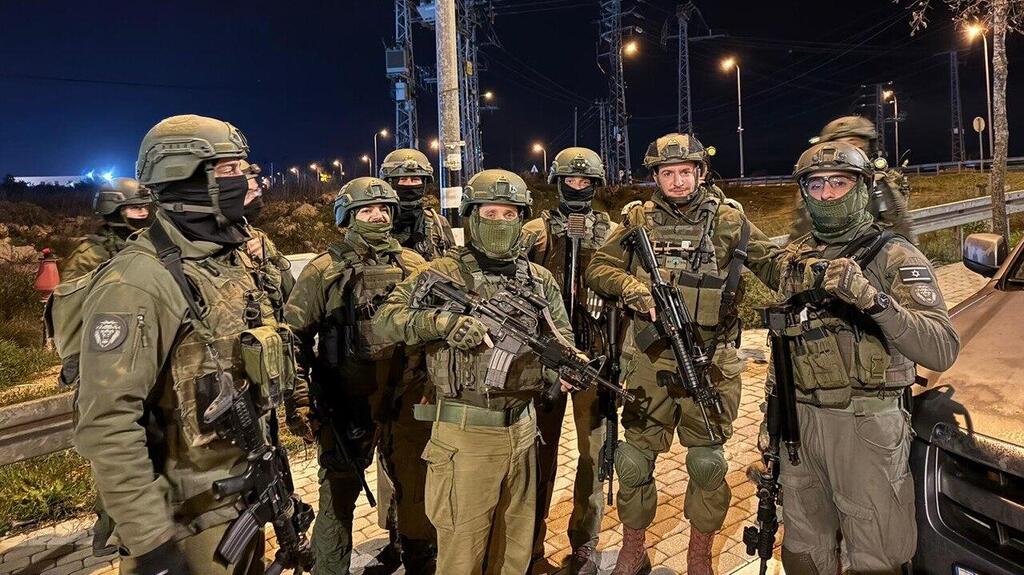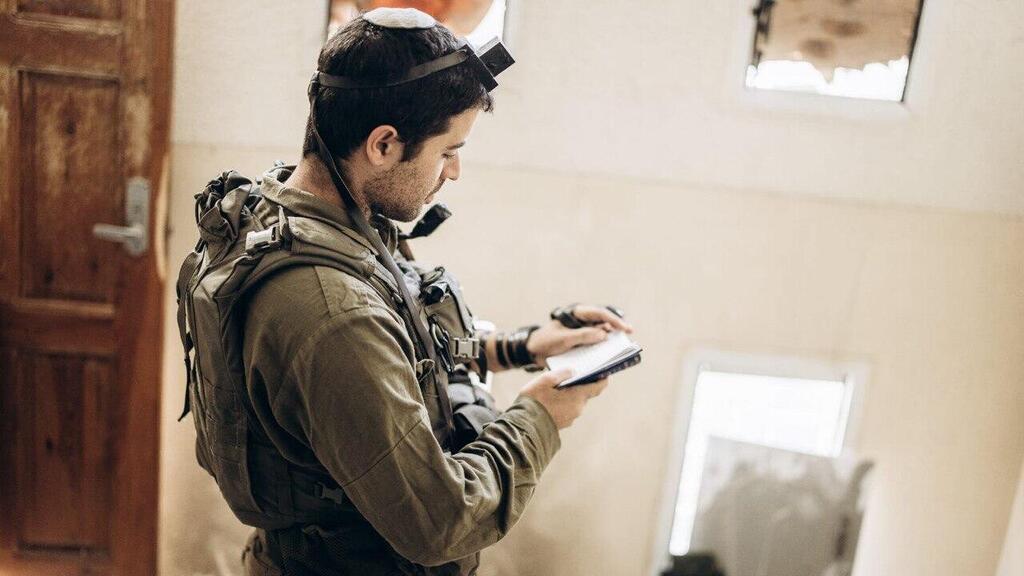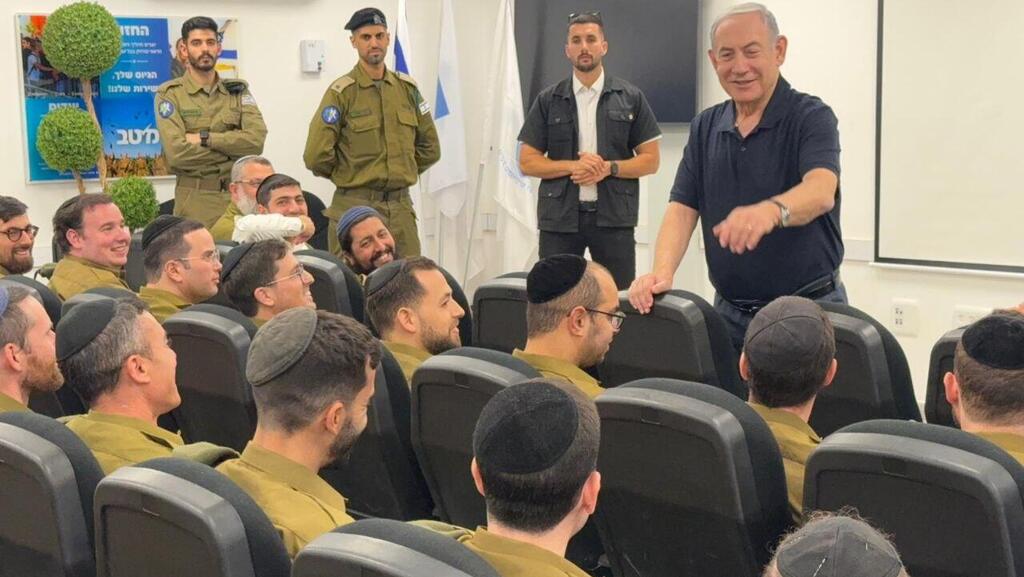Ever since October 7, every Haredi (ultra-Orthodox) Jew knew an unprecedented demand for Haredi enlistment in the IDF would come on the day after the war. The “day after” is yet to come, but the demand is already being made – and in no uncertain terms.
Read more:
The day after the massacre, it was clear that the original proposed conscription law, which granted blanket exemption for Haredim from military service, had met its final demise with the slaughter of the Gaza envelope communities. “There is no need for new legislation,” wrote Roy Bergman just two days later. “We simply need to implement the existing law (i.e. universal conscription). The war proves that there’s no other way.”
Today, it seems equally clear that alternative proposals to integrate Haredim through various national service opportunities will not pass the test of public scrutiny. “We absolutely have to enlist Haredim now,” tweeted Aviad Glickman, alongside hundreds of similar tweets on the subject. “Haredi individuals should enlist for three years. Including combat roles.”
Well-spoken, but the crucial question is how to do it. Everyone wants Haredim in the army, but everyone understands, and certainly ought to understand, that Haredi recruitment en masse is simply unfeasible, certainly not “now” – a word that has achieved excessive popularity in our turbulent times.
So what is the solution? In our view, the solution lies in setting a realistic goal: not recruiting “everyone, immediately,” but rather harnessing the existing momentum to initiate a significant recruitment process for young Haredi men. This goal is important in two ways. First, because it is realistic; it can be done. And second, because it can be translated into the internal language of Haredi society. Without direct communication with the Haredim themselves, nothing is set to happen.
Vis-à-vis Haredi society, the relevant translation is a focus on young Haredim whose profile doesn’t fit the bill of full-time Torah study. This is the key to making real progress.
The collective Haredi memory still remembers the unequivocal statement of Rav Eliezer Menachem Shach, of blessed memory, who declared that those Haredi men who are not engaged in full-time Torah study must enlist in the IDF, and that evading this duty stains the entire community with the label of army deserters. Rav Shach referred to anybody who is not engaged in Torah study yet registers as a yeshiva student to evade military service as a rodef – an active threat to the Torah world.
Over time, this directive has been neglected. Due to the negligence (or at least partial culpability) of the state, it became the norm that every young Haredi man is exempt from military service just by virtue of being born to the right family. To maintain this situation in an era of dramatic growth among yeshiva students, yeshiva institutions were established whose primary purpose is preserving the status of a “yeshiva student” and ensuring exemption from military service. In Haredi parlance, such yeshivot are ironically dubbed (based on Psalms 104) “rabbit shelters.”
Alongside students in regular yeshivas who do not prioritize their Torah studies, students in such yeshivot often integrate some Torah study with academic studies or off-the-books employment. When the topic of military service is raised, their immediate response tends to be a lack of awareness. “I never really thought about it.” Military service simply doesn’t appear on the radar of Haredi youth.
The result, to our great dismay, is the realization of Rav Shach’s concern: the stigmatization of Haredi society with the “deserter” label, accompanied by an attendant chillul Hashem – desecration of God’s name. The “most religious” sector in Israel is accused of being the least ethical. In a period when we witness thousands of young religious men whose iron-clad faith in God couples seamlessly with service in all branches of the IDF, justifications related to fear of spiritual decline strike a hollow note.
Rav Shach’s call needs to be echoed by all of us: it is high time that Haredi young men who are not engrossed in Torah study enlist in the army. This includes thousands of young men, and their enlistment will be a tremendous contribution to the IDF, Haredi society, and the entire State of Israel. Achieving this requires a coordinated effort of three core entities.
First and foremost, we need the cooperation of Haredi communities. For over seven decades, Haredim have invested all available communal energy in the revitalization of the Torah world: yeshivot, communities, Hassidic courts, religious institutions, and so forth. Today, we are strong enough to make a significant contribution beyond the confines of our community. The citizens of this country are our brothers, and it is our duty to follow the Torah's call, “Shall your brothers go out to battle while you settle here?”
Many believe that such changes are contingent upon the leadership of the religious or political establishment. Yet, a range of positive changes that have occurred within Orthodox Judaism have come from the grassroots. After a lecture I gave to a group of Haredi soldiers, one soldier approached me to explain why he had decided to enlist. He explained that he lives in the heart of Bnei Brak, and the reason he joined the IDF was to return to his neighborhood in uniform and prove that it’s possible. Many others joined him. This is how positive change occurs.
We acknowledge the complexity of defining Haredi youth who are not engaged in Torah study. What is the minimum required? Where should the line be drawn? These are good questions, but we must recognize that difficulty in determining drawing the line does not undermine the model itself. Once the enlistment of non-learning Haredi youth receives internal-Haredi legitimacy, the question of where to draw the line will become clear by means of a healthy social dynamic, just as other social questions are resolved.
Second, a deep collaboration with the military is required. The familiar and successful model of integrating Haredim into the army is by means of the Netzach Yehuda (Nachal Haredi) Battalion, which receives close support from a civilian organization. True, most soldiers in the battalion do not fit the profile that aligns with mainstream Haredi society, yet the infrastructure exists and is ready to absorb hundreds more soldiers. The combination of the battalion and its twin civic organization, replete with a rabbinic team, lone-soldier apartments, a vibrant veteran association, and several pre-military academies, enjoys high public trust and awaits expansion.
Clearly, such a process entails paying a price from the army’s perspective. In recent years, the military has adopted an ideological agenda of integrating women into almost every division and unit, which stands in tension conflicts with the trend of integrating Haredim in the IDF. The army needs to focus on a single ideology: strengthening the military and ensuring Israel's victory in its conflicts. When this is the exclusive objective, practical solutions allowing effective integration of both Haredim and female soldiers will surely be found.
Third, there is a need for a considerable level of restraint, tolerance, and solidarity from the general Israeli public. “We cannot leave the situation as it was,” said Nir Dvori recently on Channel 12. “People must be a part of this country, and whoever is not a partner cannot remain here.” This kind of rhetoric is deeply damaging. We are not going to expel anybody who doesn’t serve from the country, and such statements are far better left unsaid.
All sides need to appreciate that you can’t have it all. We must set aside the question of drafting yeshiva students truly engaged in Torah study and focus on the many young Haredim who don’t fit the bill. True, this will not achieve absolute equality (which doesn’t even in the Hesder Yeshiva model either), but that should not be the goal. We need participation and responsibility, not absolute equality. For the sake of Jewish unity and brotherhood, for the Jewish State’s fundamental ethos, and for the entire population residing within its borders, compromises must be made.
Bottom line, we all need to give something up. For the Haredim, this entails a significant sacrifice: the partial relinquishment of the isolationist principle that dictates maximal distancing from the state and its institutions. True, Haredi separatism today is far from what it once was, but entry into the army will constitute official recognition of this fact. The army, through various recent initiatives in the field of Haredi recruitment (such as focusing on high-tech), has already demonstrated its readiness for far-reaching concessions. The same holds for us all.
Partial concessions by all parties will allow us to move forward, together. Only thus can we win.
- David Hager is an Israeli-American businessman. Yehoshua Pfeffer is a community rabbi and head of the "Iyun" institute for Haredi responsibility. Both serve as board members of the Netzach Yehudah organization.
First published: 16:36, 02.14.24





